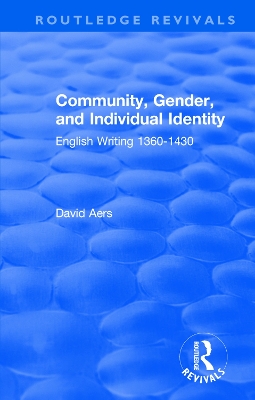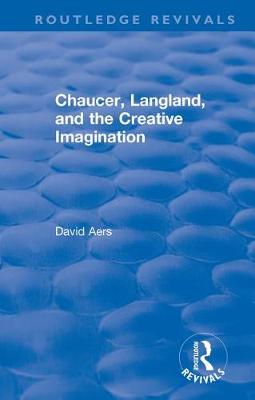Routledge Revivals
2 total works
First published in 1988, David Aers explores the treatment of community, gender, and individual identity in English writing between 1360 and 1430, focusing on Margery Kempe, Langland, Chaucer, and the poet of Sir Gawain. He shows how these texts deal with questions about gender, the making of individual identity, and competing versions of community in ways which still speak powerfully in contemporary analysis of gender formation, sexuality, and love. Making wide use of recent research on the English economy and communities, and informed by current debates in the theory of culture and gender, the book will be of interest to those concerned with medieval studies, Renaissance studies, and women’s studies.
First published in 1980, this study of two renowned later fourteenth century English poets, Chaucer and Langland, concentrates on some major and representative aspects of their work. Aers shows that, in contrast to the mass conventional writing of the period, which was happy to accept and propagate traditional ideologies, Chaucer and Langland were preoccupied with actual conflicts, strains, and developments in received ideologies and social practices. He demonstrates that they were genuinely exploratory, and created work which actively questioned dominant ideologies, even those which they themselves revered and hoped to affirm. For Chaucer and Langland the imagination was indeed creative, involved in the active construction of meanings, and in their poetry they grasped and explored social commitments, religious developments and many perplexing contradictions which were subverting inherited paradigms.

